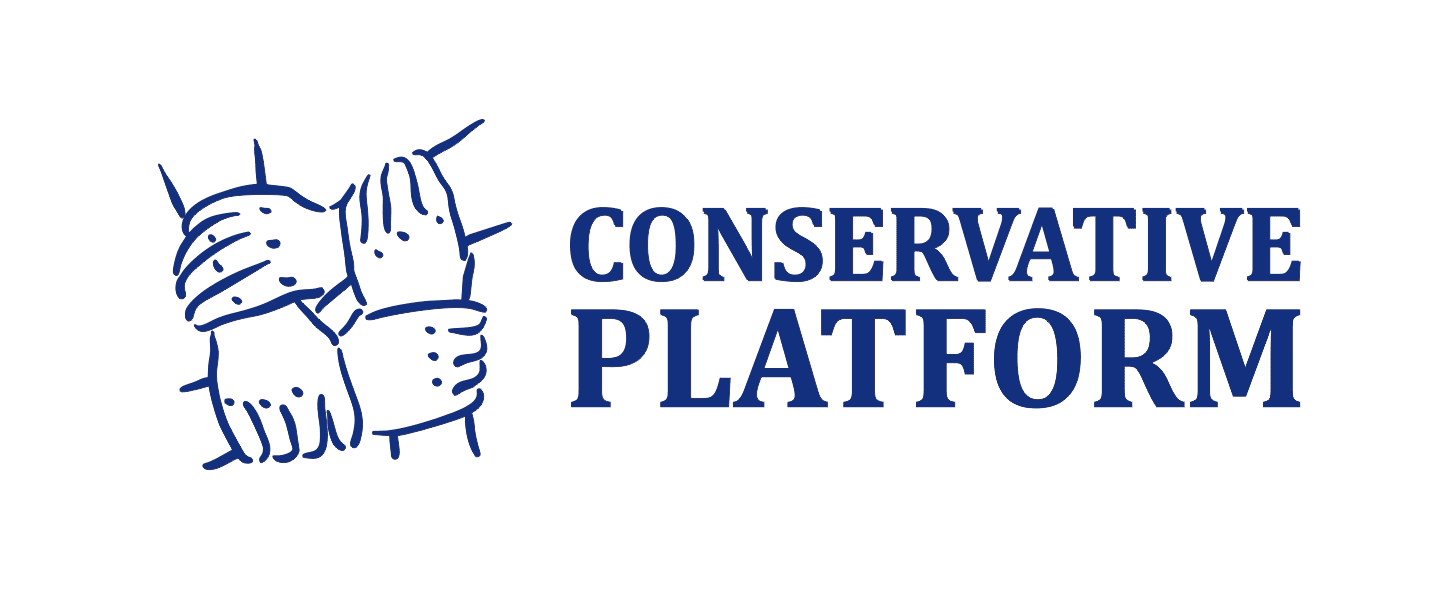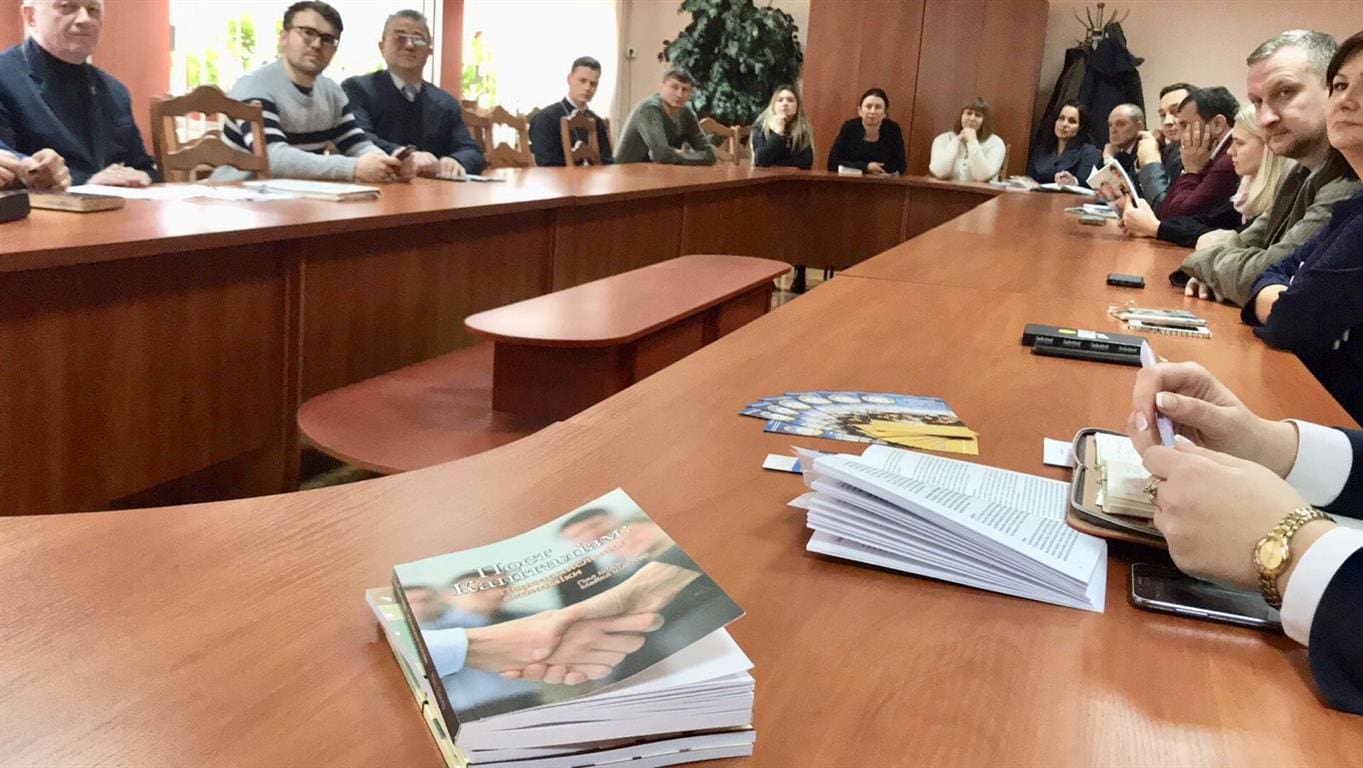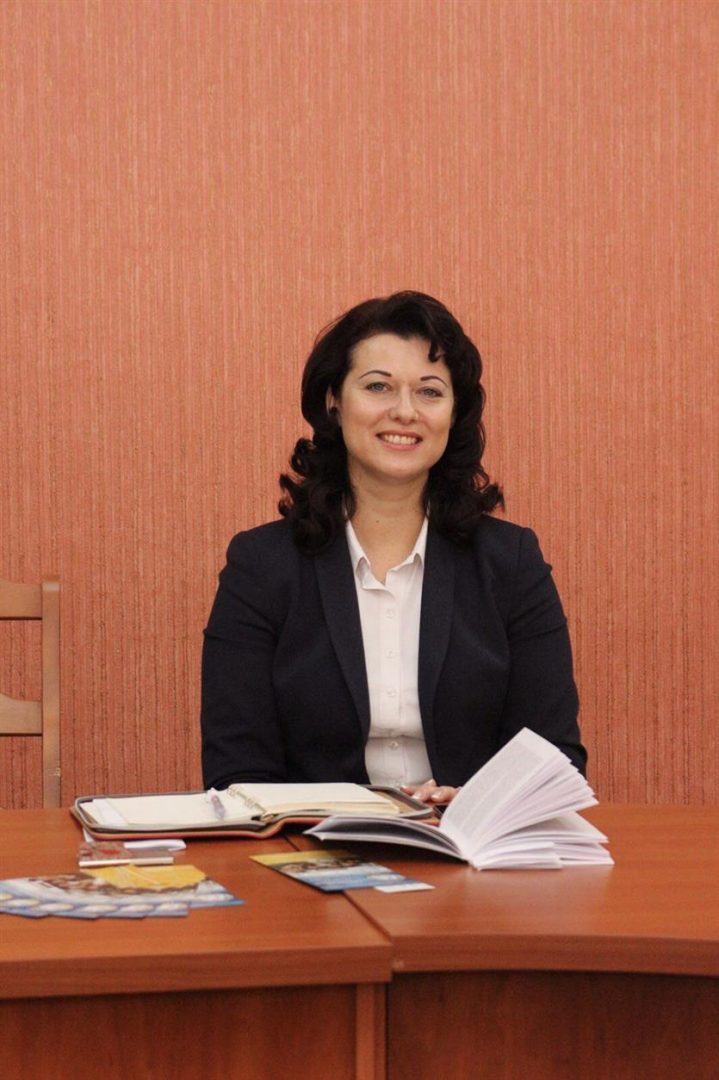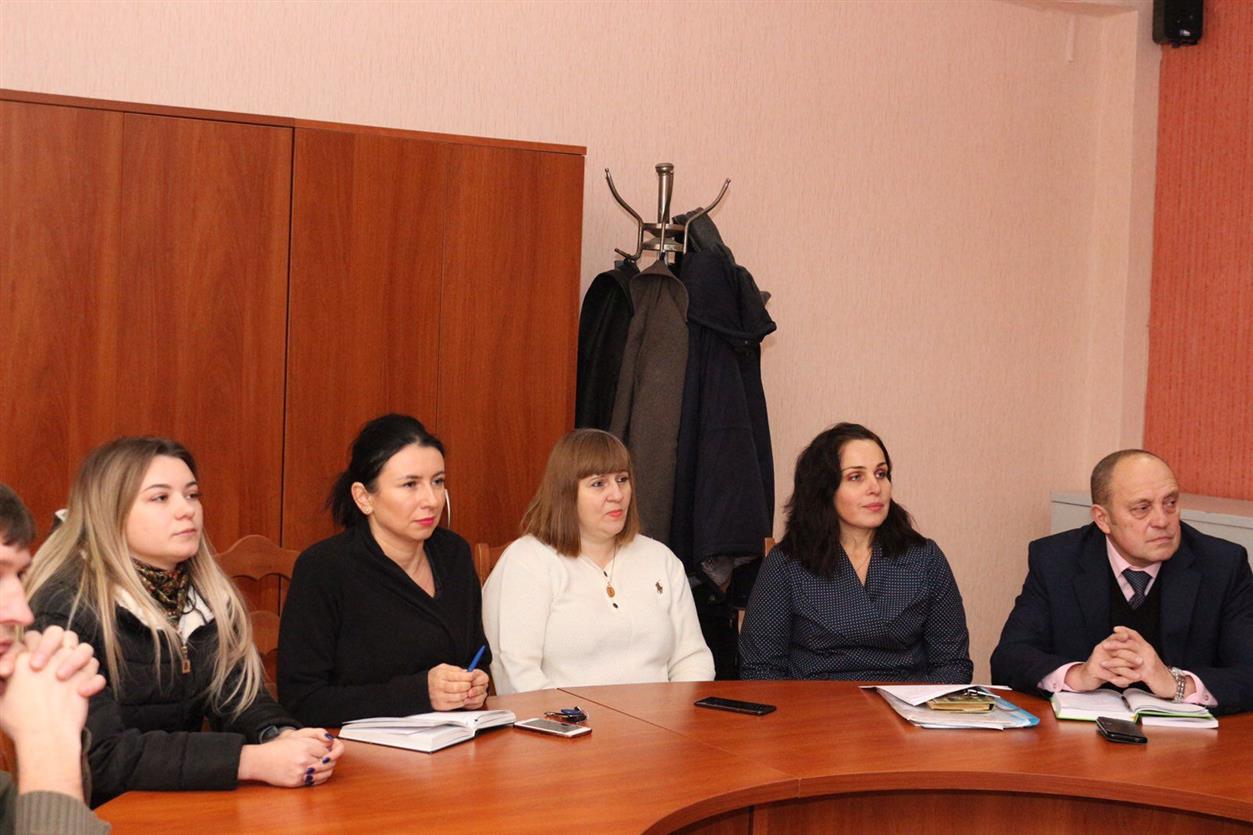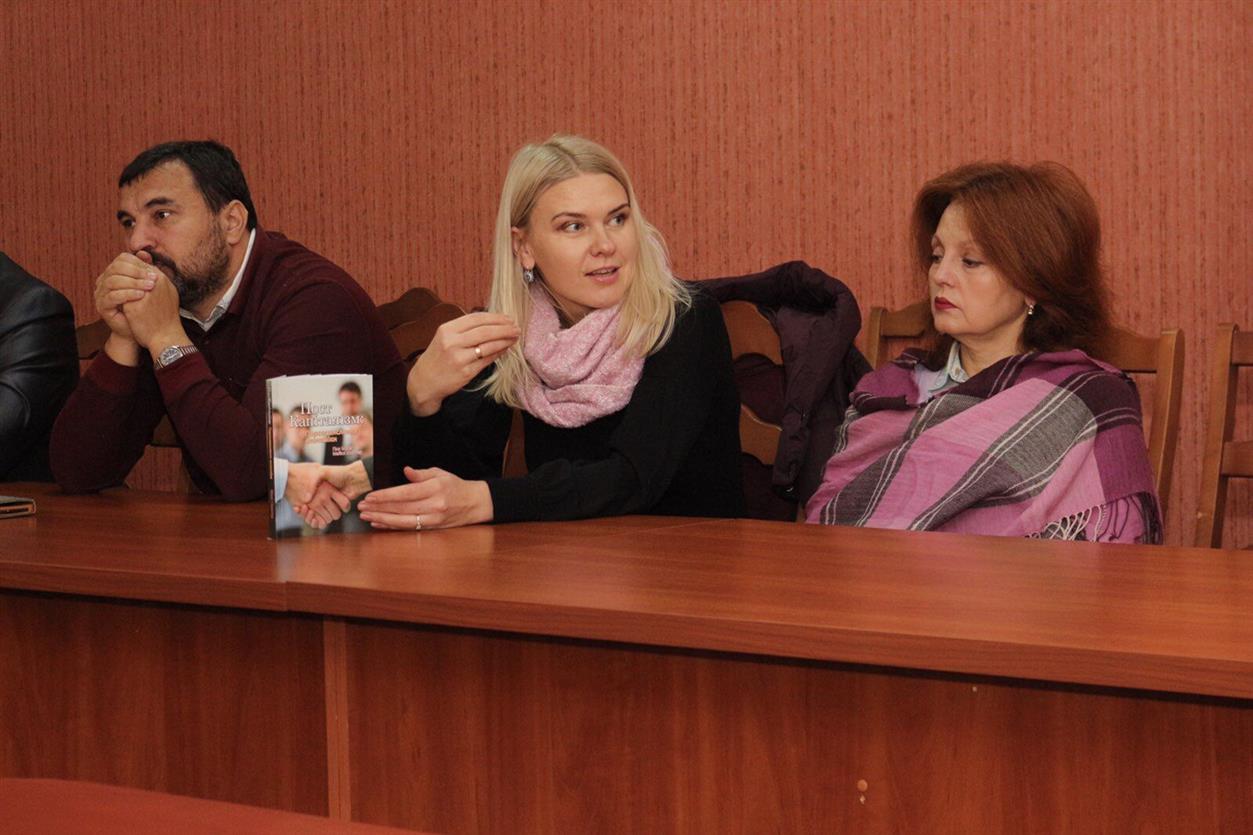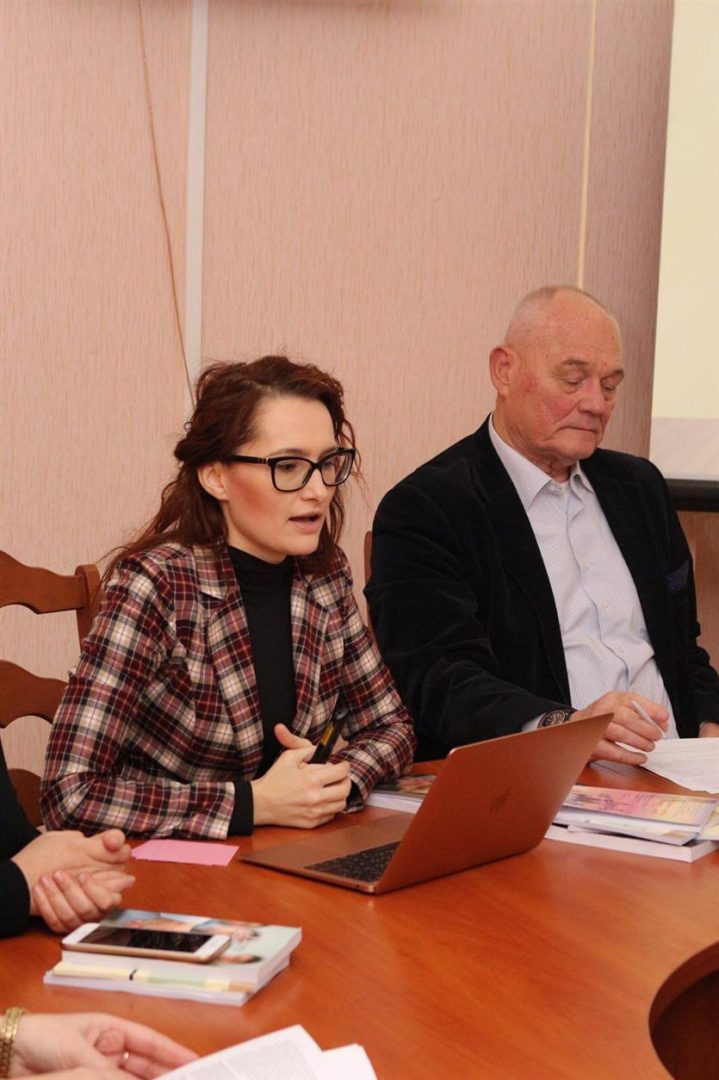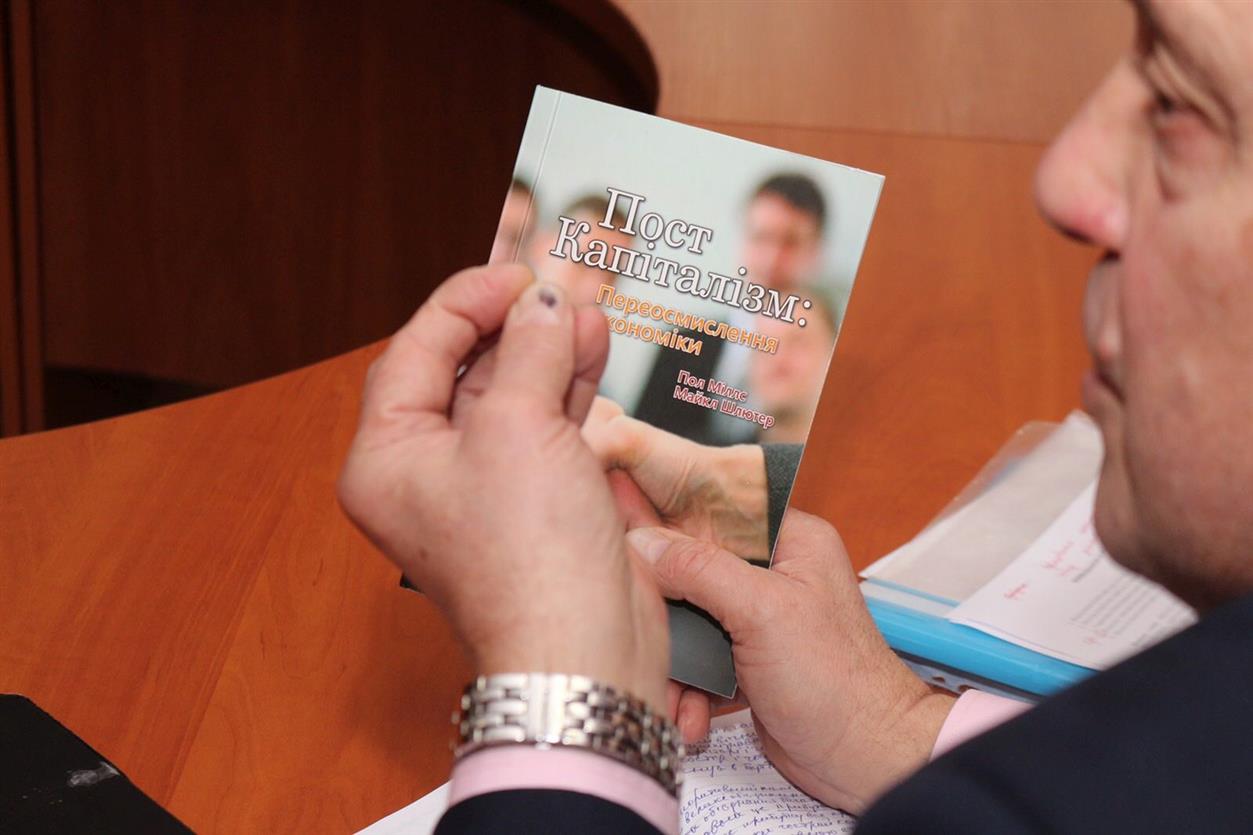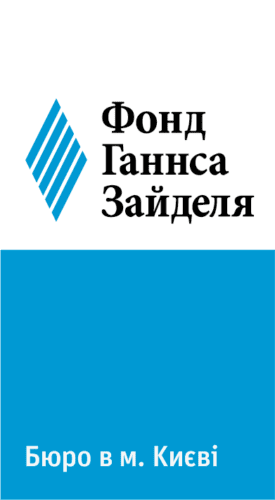The program was attended by about 30 scholars from various universities. The main speakers were:
- Rector of the Kyiv Cooperative Institute of Business and Law, Doctor of Economics, Professor Tetiana Kaminska;
- D. in Economics, Professor of the Kyiv Institute of International Relations of the Taras Shevchenko National University of Kyiv – Leonid Kistersky;
- Director of the Foundation for Support of Democratic Initiatives Yuriy Mindyuk, publisher of the book Postcapitalism;
- Doctor of Law, Professor of Odesa Law Academy, Member of the Board of the Ministry of Education and Science – Olesia Vashchuk;
- D. in Economics, Associate Professor of KNTEU, member of the Presidium of the Council of Young Scientists at the Ministry of Education and Science, coordinator of scientific societies of young scientists at Kyiv universities – Olga Romanenko and others.

Rector of KKIBiP Prof. Tatiana Kaminsk and delivered a welcoming speech as the host of the event. The rector emphasized that the search for a fair human-centered economic model based on Christian values is an important task for Ukraine today. From her own experience, the professor shared with the roundtable participants her impressions of the philosophy of economics in China, expressing the opinion that Ukraine needs a civilizational value concept that will set a coordinate system for the Ukrainian person in the world.
Professor Olesia Vashchuk focused her attention on the philosophy of economics, understanding economics as an act of creation, ethical responsibility, and social partnership.
Professor Leonid Kistersky outlined the ethical dimension of the book Postcapitalism. The speaker analyzed the approach and style of writing the book by the authors, who had experience in international financial organizations. Prof. Kistersky expressed the opinion that Ukraine desperately needs a value paradigm, which is Christianity. Values will help to organize the ethical space of our society, which will contribute to the establishment of fair relations and prosperity.
Yuriy Mindyuk, Director of the Foundation for Support of Democratic Initiatives, gave a brief analysis of the book Postcapitalism. The speaker focused on three problems raised by the authors, namely the problem of interest-bearing lending and debt obligations, the problem of migration and loss of roots, and the problem of limited liability. The representative of the FPIF outlined the proposals made by the authors of the book to solve these problems.
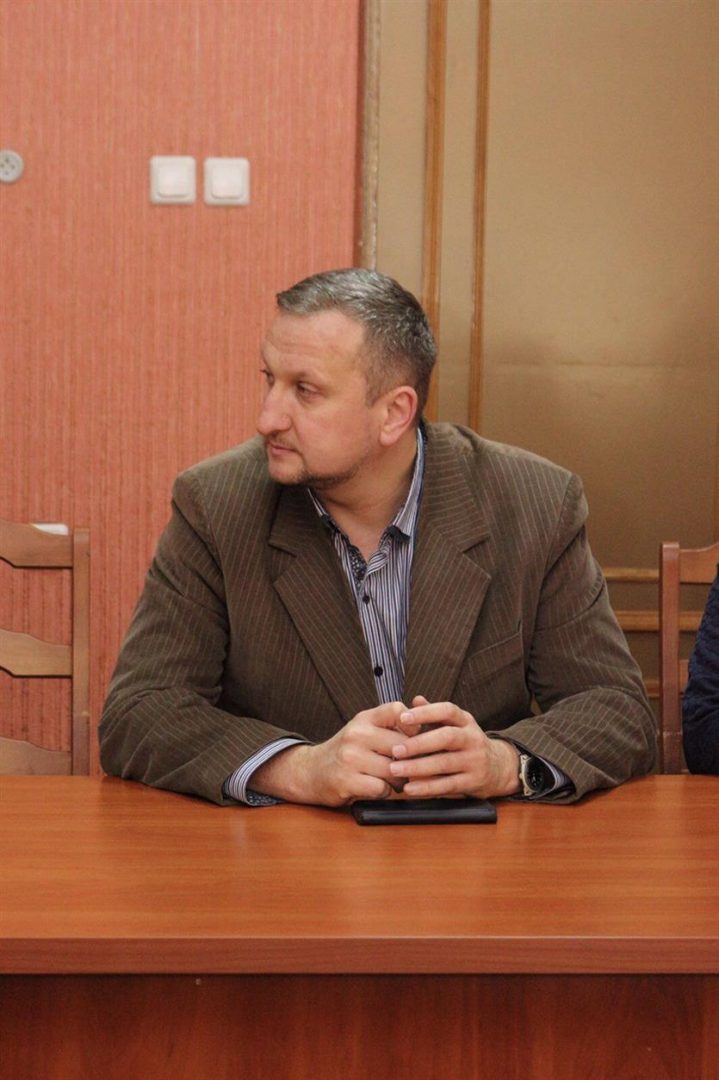
Olga Romanenko, PhD in Economics, emphasized the value dimension of the issues raised in the book Postcapitalism. Values are essential for modern Ukrainian society. Post-Soviet Ukraine has not yet built its own value and civilization paradigm, trying to either borrow something from someone else or build multi-vector and multivariate in this matter. Christian values are an essential element of the Ukrainian national tradition, which the Soviet totalitarian system tried to destroy. Returning to Christian roots, building a value-based society with its own vision of its role and place in the world is an important task for Ukrainians today.
The presentations sparked lively discussions among the roundtable participants. Many of them were close to the ideas expressed in the book and reinterpreted by the speakers. Some criticized these approaches. However, the vast majority of those present agreed that the economy is not just a struggle for profit, it is also about creation, social partnership and responsibility.
—
Relational economics is a theory developed by economists at the University of Cambridge.
Researchers Paul Mills and Michael Schlueter analyze the theory of relational economics in their book Postcapitalism: Rethinking Economics. The ideas of this book have been discussed by Ukrainian scholars in various fields of economic and legal sciences.
The scientists noted that more and more researchers have recently drawn attention to the fact that all economic structures and financial transactions reflect and, in turn, affect the QUALITY of human relations, and the main interest of business activity should be relational, not just the financial result of economic activity.
Without strong and stable families and communities, the responsibility for welfare falls to national governments, and taxation contributes to the economy’s competitiveness in global markets. In addition, family separation causes great environmental damage, as family members have to travel far to spend time with their families.
Fundamentals of Relational Economics
The foundations of an economic system have a variety of implications. “Institutions” or rules of “behavior” reflect what society considers right and wrong, and what people with power can change. They determine how resources such as land and capital are allocated, as well as the further development and redistribution of these resources.
They shape the role of central and local government in education, criminal justice and the economy. They play an important role in identifying and providing for vulnerable and excluded people, and identifying those who feel the need to care for them.
In addition, they affect the spread of corruption and its impact on the economy, employment, social security and public services.
Institutions can change over time, rather slowly, so the ground rules are often written into a country’s constitution and can have a significant impact on long-term cultural and social change.
Various Cambridge studies have shown that modern economic and business models of European countries are in line with the principles of the Bible’s teaching on economics, as Christian civilization has influenced the economic culture of Western countries.
One important factor in development is the need for economic activity to operate outside the direct control of politicians and bureaucrats, so that economic and political forces are separated as far as possible. This need is explained by the realization that the bitter consequences of the decline of human nature are best limited by the wide spread of power, i.e., the test for tyranny.
The vision of English scholars of relational economics, and in the future, the construction of a relational society, aims to restore Europe to its spiritual roots and provide a Christian foundation for the diverse peoples of Europe, which again gives hope for economic prosperity, financial stability, and social cohesion.
